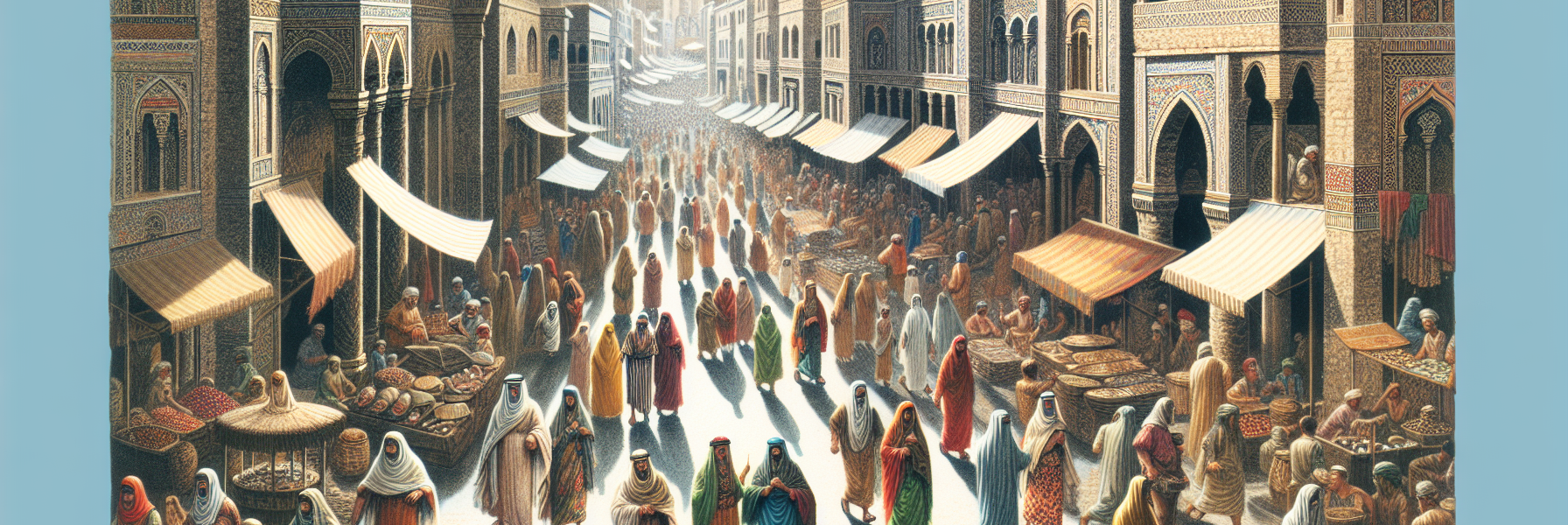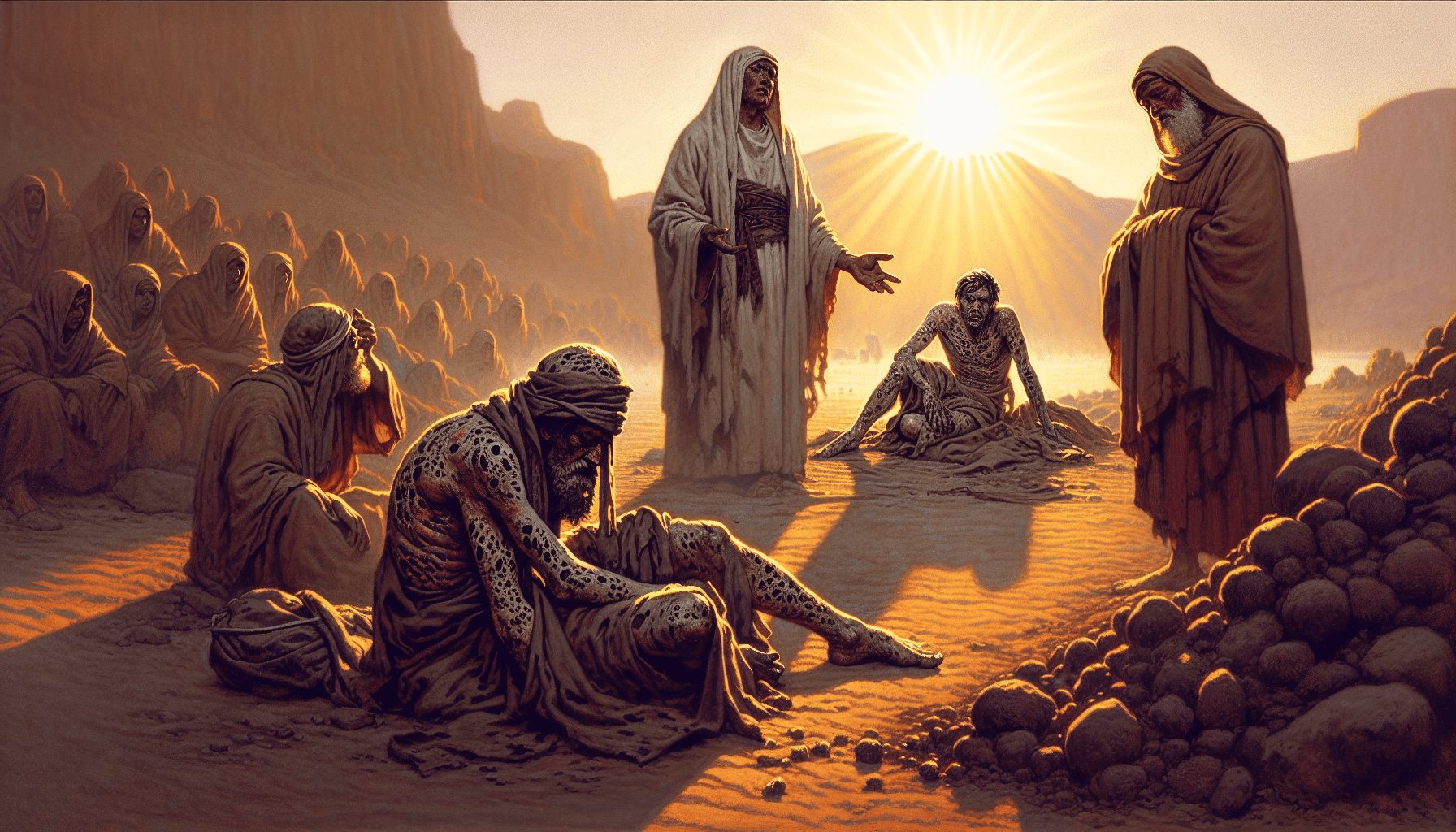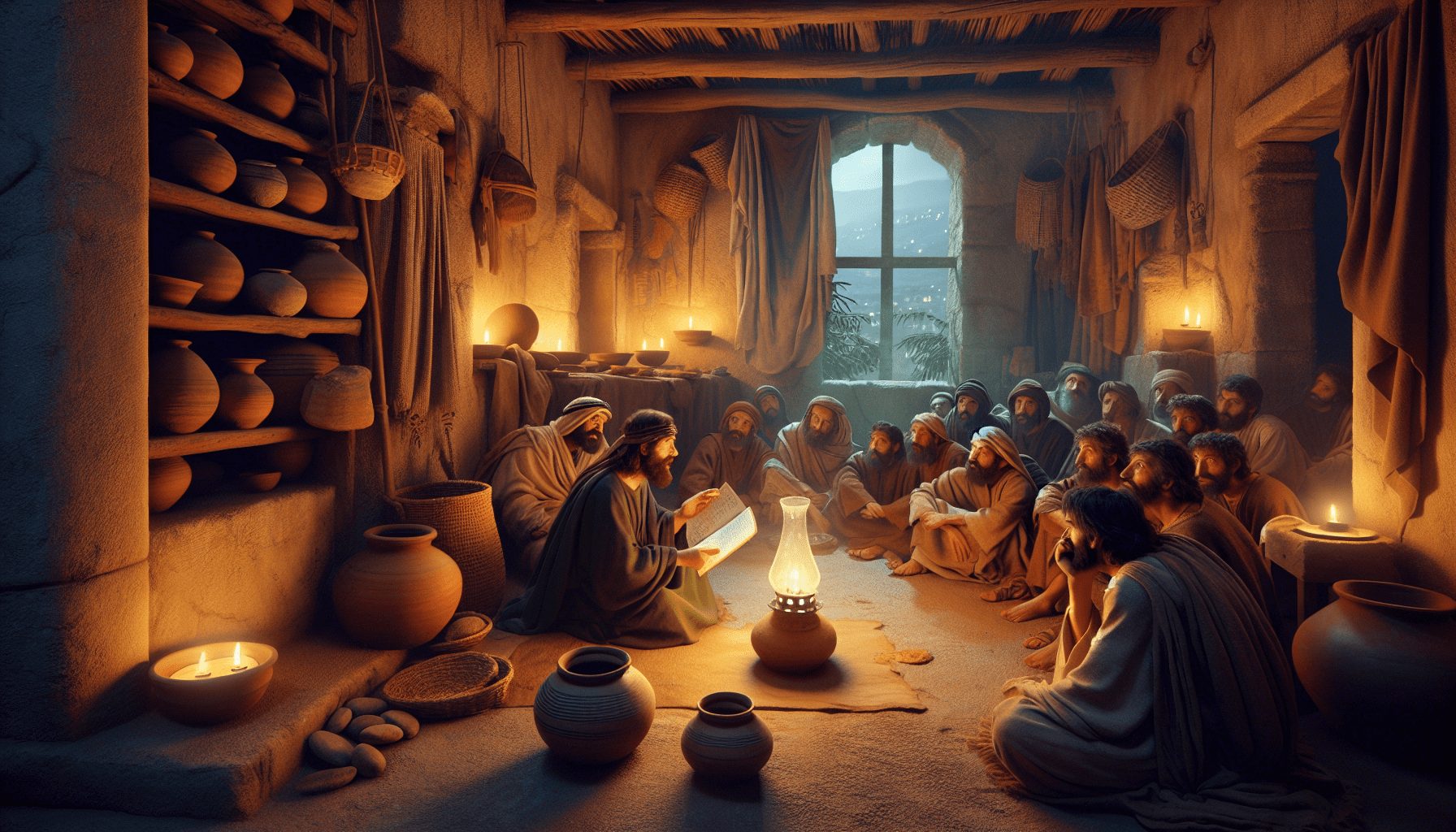**The Fall of Jerusalem: A Tale of Pride and Judgment**
The sun hung low over Jerusalem, casting long shadows across the city’s bustling streets. The air was thick with the scent of spices from the market, mingling with the distant sound of merchants haggling and children laughing. But beneath the surface of prosperity, a deep corruption festered. The leaders of Judah had grown arrogant, their hearts far from the Lord, and the people followed eagerly in their footsteps.
The Lord had watched in sorrow as His chosen nation turned away from His commandments. The elders, once wise and just, now ruled with greed, exploiting the poor and ignoring the cries of the oppressed. The women of Jerusalem, adorned in fine linen and gold, strutted through the streets with haughty eyes, their vanity a symbol of the nation’s spiritual decay.
Then the word of the Lord came through the prophet Isaiah, thundering like a storm over the mountains:
*”See now, the Lord, the Lord of Hosts, is about to take from Jerusalem and Judah both supply and support—the whole supply of bread and the whole supply of water—the mighty man and the warrior, the judge and the prophet, the diviner and the elder, the captain of fifty and the man of rank, the counselor and the skillful enchanter.”*
A hush fell over the land as the prophecy unfolded. The Lord would strip away every pillar of society, leaving the people to stumble like drunkards in their confusion. No longer would there be wise leaders to guide them, no strong warriors to defend them. In their place, He would raise up mere children to rule—inexperienced, reckless boys who would lead the nation into further chaos.
The people trembled as famine crept through the streets. The once-bountiful markets stood empty, the granaries dry as dust. Fathers fought with sons, brothers betrayed brothers, all scrambling for the last scraps of food. The wealthy, who had once feasted in luxury, now groaned in hunger, their fine robes hanging loose on their gaunt frames.
Yet even in their suffering, they did not repent.
*”The Lord brings this charge against the elders and leaders of His people: ‘You have ruined My vineyard; the plunder of the poor is in your houses. What do you mean by crushing My people and grinding the faces of the poor?’ declares the Lord, the Lord of Hosts.”*
The women of Jerusalem, who had once taken such pride in their beauty, now wailed as their ornaments were stripped away—their perfumes, their jewels, their finely woven garments. No longer would they flaunt their vanity, for the Lord would replace their sweet fragrance with the stench of decay, their elegance with shameful baldness.
In the streets, the cries of the righteous mingled with the groans of the wicked. A remnant still clung to the Lord, whispering prayers in the darkness, but the nation as a whole had brought judgment upon itself. The once-glorious Jerusalem, the city of David, now stood as a warning to all who would forsake the Lord.
Yet even in wrath, the Lord remembered mercy. For beyond the darkness of judgment, a promise glimmered—a Branch of righteousness that would one day rise, a King who would reign in justice and truth. But for now, the people would reap what they had sown, learning in sorrow what they had refused to learn in peace.
And so the city waited, under the shadow of the Almighty’s hand, for the day when He would once again show favor to His people.



